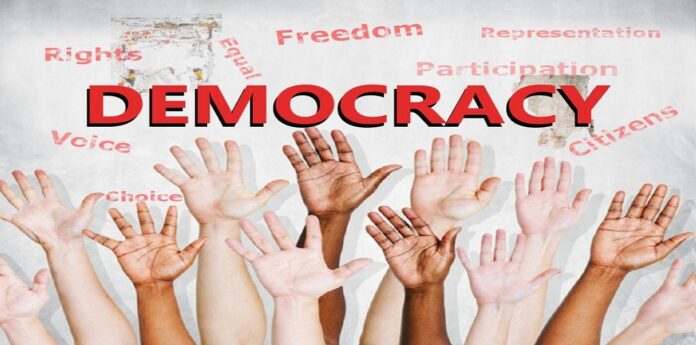Explore the intricate dynamics of democracy in India with our latest article, where we scrutinize the growing concerns around the ‘One Nation, One Party’ ideology and its implications on democratic principles under Narendra Modi’s leadership and the BJP’s strategies. From the fervent devotion of Modi’s supporters to critical issues like media suppression, MLA horse-trading, and the misuse of enforcement agencies against the opposition, we uncover the challenges facing India’s democratic fabric. Highlighting the importance of public involvement and the role of opposition in a vibrant democracy, our discussion reveals the urgent need for political engagement and accountability. This blog is an essential watch for those looking to understand the complex interplay between governance, citizen rights, and the enduring spirit of democracy in the face of adversity. Join us in this compelling blog on safeguarding democratic values in India.
Introduction : Democracy in India
Hey there, folks! Let’s dive into the topic of democracy in our country. It’s a serious question that needs to be addressed. Many of you might think that democracy is alive and well because we can vote for any political party we want. But the reality is much deeper than that. The evidence presented in this video will make you reconsider your stance on democracy.
Understanding Democracy in India
Before we get into the nitty-gritty, it’s essential to understand what democracy truly means. It’s not just about holding regular elections; it’s about ensuring that those elections are free and fair. Take North Korea, for example. They have elections, but if you don’t vote for the government’s candidate, you’re deemed anti-national and face consequences. That’s not democracy.
Similarly, Russia holds elections, but candidates opposing Putin are often disqualified or worse. Free and fair elections mean that everyone has the liberty to vote for their choice without fear of repercussions. It’s about ensuring equal opportunities for all parties to compete.
Election Fraud and Manipulation
The recent incidents of electoral fraud in India highlight the challenges democracy faces. From invalidating votes to EVM machine scandals, the integrity of our electoral system is under scrutiny. The undue influence of the ruling party raises questions about the fairness of our elections.
Furthermore, the misuse of investigative agencies like CBI and ED to target opposition leaders casts a shadow over the democratic process. The selective prosecution and exoneration of politicians based on their affiliations erode public trust in the system.
Media Influence and Majoritarianism
The media’s role in shaping public opinion and favoring the government raises concerns about impartiality. The suppression of dissenting voices and the glorification of those in power undermine the principles of democracy.
Majoritarianism, often confused with democracy, can lead to unjust decisions that prioritize the majority’s interests over individual rights. The example of discriminatory rules in housing societies reflects the dangers of unchecked majoritarianism.
Power Dynamics and Accountability
In a democracy, accountability is crucial for maintaining the balance of power. When elected officials evade scrutiny and accountability measures, it threatens the core values of democracy. The suppression of dissent and curtailment of the right to protest signal a dangerous trend towards authoritarianism.
Ultimately, the health of democracy depends on the active participation and vigilance of its citizens. Upholding the principles of liberty, equality, fraternity, and justice is essential to safeguarding democracy from erosion.
Conclusion : Democracy in India
So, is democracy still alive in our country? The challenges and threats highlighted in this video paint a grim picture of the state of democracy. It’s up to us, as citizens, to defend and uphold the principles of democracy. The road ahead may be challenging, but with collective action and advocacy, we can ensure that democracy thrives in our nation.





